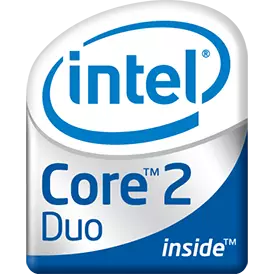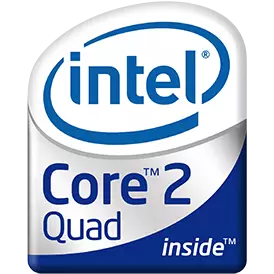
Compare Intel Core 2 Quad Q9505 VS Intel Core2 Duo E7500. Which processor delivers superior performance?
In this detailed comparison, we evaluate the specifications and benchmarks of both processors to determine the best choice for your needs. We analyze their core counts, maximum frequencies, and power consumption.
Intel Core 2 Quad Q9505 boasts a maximum frequency of 2.83 GHz GHz. 4 cores that enhance multitasking capabilities.With a power consumption of 95 W W, it ensures efficient performance.Released in Q3/2009, it incorporates the latest technology for optimal efficiency.
Intel Core2 Duo E7500 features a maximum frequency of 2.93 GHz GHz. 2 cores designed for high-performance tasks.Its power consumption is 65 W W, providing a balance of power and efficiency.Launched in Q1/2009, it is built to handle demanding applications.
 Reasons to consider
Reasons to consider Place in the overall ranking
(based on several benchmarks)
More number of cores
2 times more cores
Common positions Intel Core 2 Quad Q9505 CPU in popular benchmarks, for comparison with other models.
 Reasons to consider
Reasons to consider Place in the overall ranking
(based on several benchmarks)
Higher clock speed
Around 3% better clock speed
Performance per watt
About 0.68 times less performance per watt
Common positions Intel Core2 Duo E7500 CPU in popular benchmarks, for comparison with other models.
 Intel Core 2 Quad Q9505
Intel Core 2 Quad Q9505

Comprehensive background on the processors being compared, detailing their series, generation, and targeted market segment.
Essential parameters including the number of cores, threads, base and turbo frequencies, and cache size. These metrics provide insight into the processor’s speed—higher values generally indicate better performance.
Overview of the types and quantities of RAM supported by Intel Core2 Duo E7500 and Intel Core 2 Quad Q9505. The supported memory frequencies may vary depending on the motherboard configuration.
Analyze the TDP (Thermal Design Power) requirements of Intel Core 2 Quad Q9505 and Intel Core2 Duo E7500 to make an informed decision on the appropriate cooling system. Remember that TDP refers to thermal watts, not electrical watts.
Information on architecture, interfaces, and additional instructions supported by Intel Core 2 Quad Q9505 and Intel Core2 Duo E7500, including virtual machine technologies and fabrication processes.
By analyzing the results from various benchmarks, you can gain a clearer understanding of the performance differences between Intel Core 2 Quad Q9505 and Intel Core2 Duo E7500.
Compare the synthetic benchmark scores and make an informed decision on the best processor for your needs!